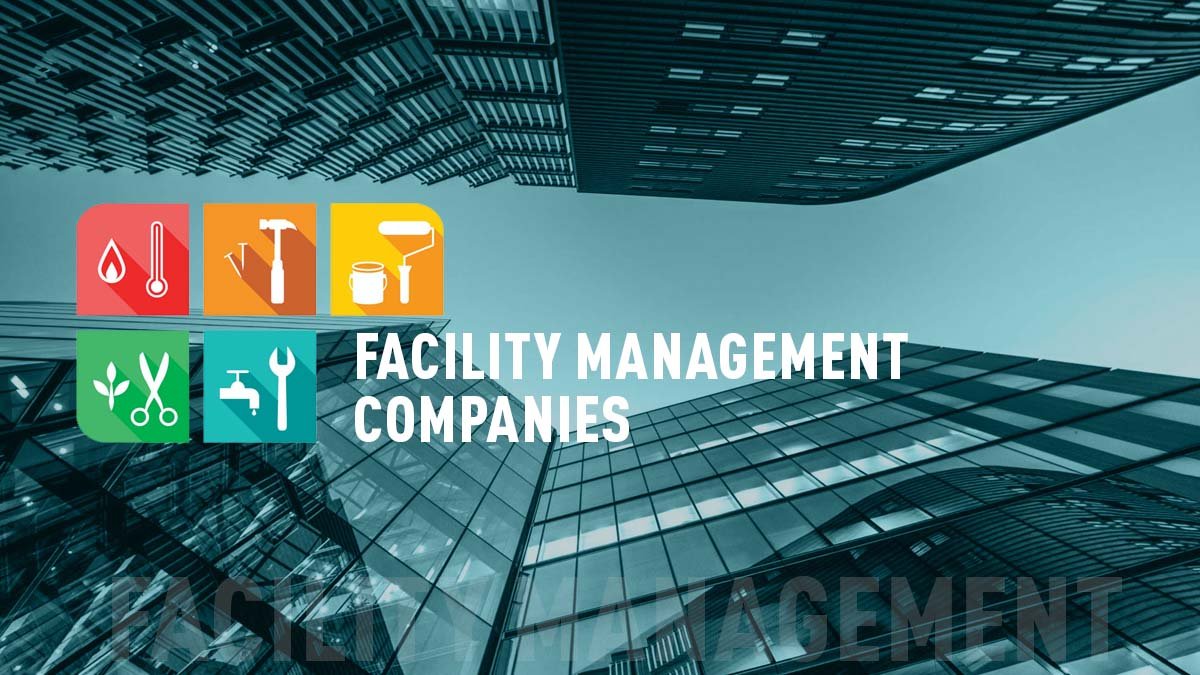
Facility Management Companies
Facility Management Companies
Today, in the era of ultra-competitiveness, businesses are continually trying to balance the development of internal resources against outsourcing of different services. Whether or not an entity can employ a facilities management firm is a question that often occurs in the industry. The response depends on the particular needs, budget, size and growth trajectory of the company. Over the past few years, facility management has become so critical that corporate and company owners have recognized that building management services enable businesses to operate more effectively. Facilities Management is a combination of building functions that can be outsourced to improve the quality of building performance for occupants and the productivity of the business in which it operates. Given the advantages of a service, the question arises: why use the facility management business?
Why to use a Facilities Management Company
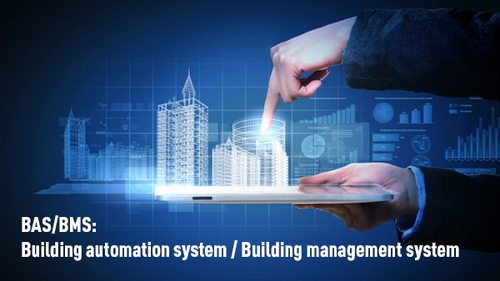
All activities related to the maintenance of complex commercial property operations may be undertaken by the facility management company. The facility management company manages facilities such as manufacturing and industrial buildings, office buildings , retail centers and parks, sports facilities , hospitals, hotels, arenas and many more.Many of such facilities can be either private or public entities. A facility management firm has a number of roles to perform in meeting the different needs of an organization.
Duties of a facility management company
The facility management company facilitates the training of the staff on policies and procedures, from how to behave in the event of an emergency to the control of lighting systems in the building. It ensures that the facility complies with the relevant regulations, compliance requirements. The company monitors and reacts to environmental , economic, health and safety problems and it also controls all facets of building operation and repair, allowing the business to function efficiently and effectively. The facility management company anticipates the potential needs of the plant. Especially in fields such as energy efficiency. This is the responsibility of the facility management company to ensure that the client benefits the most from its facilities related expenses. It is their duty to monitor the effectiveness of the organisation. The complexity of the role of facility managers is driven by a number of factors. Expertise is necessary , for example, in the areas of mechanical and electrical maintenance, building fabric maintenance and repairs, among many other factors, including property compliance, health and safety and energy efficiency.
Importance of a Facility Management Company
Facilities include office complexes, physical resources at the company or site and any other mechanical and electrical utilities that may portray a health or safety hazard to employees. Some of the main reasons why facility management is so critical is that when a company is managing staff, the health and safety obligations allow you to be completely prepared to deal with any circumstance. Control of facilities has gained significance in the last few years. It is because businesses have recognized that well-managed buildings and services help organizations run successfully and efficiently. Some of the factors that make facility management important are:
- Increasing the cost-effectiveness of the company
- Manage requirements for health and safety
- Increase the life of your assets
- Track and maintain compliance
The facility management teams are made up of specialists engaged in the day-to-day research, maintenance and repair of client services. The facilities management team should also actively be involved in strategic planning activities that help in cutting costs and increasing employee productivity. Facilities management teams need to ensure that all facilities within the organization comply with the health and safety regulations of the industry. They will also ensure that the complex has:
- Connection to disabilities
- Methods of fire prevention
- Emergency escape plan in place
- Efficient management of waste
- Management of dangerous chemicals
- Maintenance of business parking spaces
Strategic role of facilities management Companies
According to recent research on the strategic position of facility management, almost 75% of facility management practitioners have concluded that facility management has a major strategic impact. Nevertheless, only about 20% of the facility manager's time is spent on policy and preparation tasks, while 53% is spent on routine day-to-day operations. In order to maximize the time that facility managers will spend on strategic planning, companies need innovative facility management tools that will free up time spent on day-to-day operations.
Good facilities management software allows professionals to conduct evaluations as well as monitor and maintain the properties and services of the business.The goal of every company is to reduce costs, boost the productivity of employees and increase ROI. An efficient facilities management process is essential to the company. This is because it covers almost all aspects of business, and its role in strategic planning helps a company to achieve its business objectives.
Services offered by facility management companies
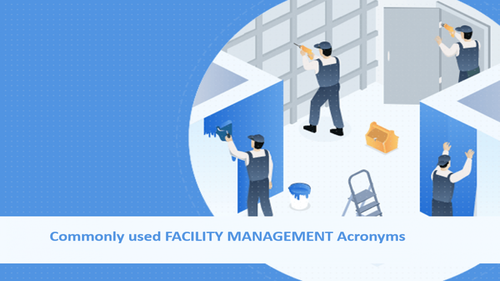
Facility management firms deliver a wide variety of services and others are likely to specialize in one form of service.
- Overall management of facilities:- Facility management companies naturally help organizations manage many aspects of their facilities, from preventive maintenance on equipment to daily cleaning. These services are often extensible, allowing businesses to get as much assistance as they need to keep their facilities running smoothly.
- Security Services:- Keeping properties and staff safe and protected is a top priority and some outside support is always needed. Surveillance, access control, and management alerts all factors to safeguarding a work area and are an often overlooked component of facility management.
- Maintenance Projects:- Maintenance teams perform several tasks over the course of a single week, and all projects whether requiring small improvements or massive overhauls need to be well prepared and effectively managed. Such maintenance programs are designed and operated by Facilities Management firms as well as helping businesses see them through to completion.
- Quality Control:- FM organizations use a range of procedures and services such as preventive maintenance, regular checks, and process analysis to ensure that the final products of a company meet the highest quality requirements. Maintaining machines and systems in top-of-the-run condition is essential to quality assurance, as are regular equipment inspections.
- Real Estate Maintenance:- Some facilities management companies specialize in the care and management of real estate. This form of service focuses on keeping property and buildings in good condition, incorporating routine maintenance, preventive and reactive repairs, and daily cleaning.
- IT and Networking:- A building must maintain its IT network along with its physical machines and systems, in order to keep operations going. Network monitoring, maintenance, and security services help keep the IT infrastructure of a facility in reliable working shape while avoiding breaches that could compromise the entire company.
- Cleaning Services :- Keeping facilities clean is a key component of management of facilities, and many FM companies offer cleaning and cleaning services. Such programs can provide regular comprehensive cleaning or day-to-day custodial work.
- Support Services:- At a given facility the exact shape FM takes looks different from one company to the next. Some require more support than others, and can vary widely in the types of support required. FM companies also provide various support services, such as maintenance facilities, training, landscaping, and many more.
Facilities Management Outsourcing
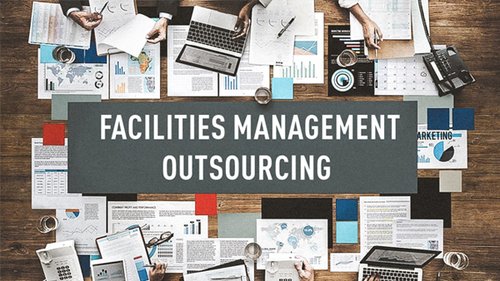
You have a range of different choices when recruiting someone to handle care of your facilities. Each has its own advantages and disadvantages and no one approach can suit all businesses.
- Hiring a maintenance supervisor :- An in-house maintenance supervisor may serve as a point person for day-to-day maintenance and management activities of facilities. In this way, you would have more leverage over your FM processes than a third-party vendor can get. The perfect candidate for this role should have outstanding skills in planning , problem-solving and people-managing.Smaller businesses may need only one individual to handle maintenance, but as an enterprise expands, that person may oversee both in-house technicians and outside contractors.
- Outsourcing Particular Works :- Most organizations are able to perform routine repair and maintenance activities internally however, when it comes to more complex requirements, they may have expertise or equipment gaps. Such businesses will also employ a contractor to do specialist work such as major repairs or enforcement inspections with their own employees taking care of their day-to-day FM needs.
- Contracting a Facility Management Company :- Hiring a third-party facilities management contractor will save on in-house training and administrative expenses, but it loses some of the control you might otherwise have over the operation of your facilities. Nonetheless, it can also be worth the high degree of preparation and experience that you'd get from a contractor.
Outsourcing to a facility management company has several advantages which ensure that a company achieves its long-term objectives, like :
- Cost reduction :- Adoption of in-house management of facilities can be a substantial expense to a company; this expenditure can be significantly decreased when an entity chooses to outsource management requirements for facilities. An enterprise is likely to spend less on an outsourcing provider-managed facility management compared to when it handles the in-house operation.
- Enhanced Flexibility :- A management company with facilities ensures that it is well informed of any developments in an organisation. It means that the facility management arrangement can continue to meet the needs of the company when an entity changes its standards, role or requirements, having the flexibility and ability to use only the relevant services.
- More time to focus on key business process:- An enterprise will have more flexibility to focus on its core business while an outsourced facility management firm will handle the facility management requirements. Management of in-house facilities includes substantial time investments and continuous adherence to compliance updates.
- Improved Service Quality :- Organizations running facilities must demand and ensure that staff achieve the best performance and operation. The facility management firm must invest in ongoing CPD, advanced software, and facilities to ensure improved service delivery efficiency.
- Streamlining Business Operations :- The key reason companies are opting for a facilities management company is to ensure optimum power. By having one touch point to handle a whole range of resources and the understanding that tasks would be fulfilled as part of a deal to operate the facilities.
- Consistency In Service Provision :- As the needs of an organization change over time, a facility management company is able to maintain the same high level of service delivery, ensuring consistent service delivery that evolves as the needs of the organizations evolve.
When your company questions why you use a facilities management service, consideration must be given to the above-mentioned advantages, in addition to their importance to your business. Different facilities management firms are not necessarily the best choice for all businesses and the type of business that you choose to work with, given the amount of benefits they can provide.
How to Start a Facilities Management Business
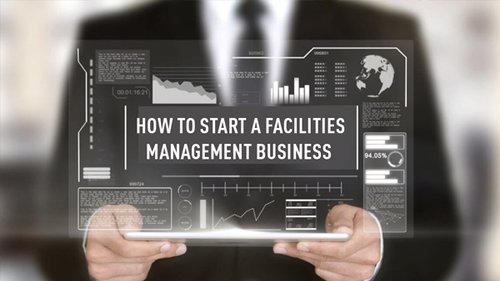
Starting a facility management business can get you on the path to a secure financial future but planning the business in detail is important before you start. The area of facility management is a purposely large industry category, covering a diverse variety of multidisciplinary specialties and job functions. Maintenance and/or maintenance services for commercial and industrial buildings are offered by facilities management companies. Nevertheless, the variety of services rendered varies greatly, from routine maintenance activities to the implementation of complex management systems for the community. Given the industry's scope, startup entrepreneurs in facility management need to rapidly assess their skills and define the specializations they can bring to customers. While some startups start off as full facility management providers, others choose to focus on safety, maintenance, fire prevention, safety , environmental compliance or other subfields as a gateway to the industry. Many facility management businessmen dream of owning a big company that caters to a high-profile list of clients. For entrepreneurs, dreaming big is good. But the key thing is to get your foot in the door and get your business off the ground as quickly as possible.
- Small beginning : There is absolutely nothing wrong with starting out small in the facility management market. For example, start your business with a handful of local office buildings, instead of holding out for a management contract with a major entertainment venue. When your business grows, you'll learn valuable lessons and build a reputation that makes landing larger customers easier.
- Strategic recruit: While it may be nice to have a Green Building Management Authority on your staff, a more strategic hiring approach could be to hire an individual who has above-average skills in multiple management disciplines so that the hire can be deployed on multiple job site types.
- Create a portfolio: Earnings are nice but every customer you acquire should have strategic value for your portfolio. The detection, targeting and securing of potential clients in your market requires time and energy. The payoff, however, would be a portfolio of clients showing an growing breadth of obligations and a comprehensive list of clients that can be exploited for referrals.
Facilities Management Business Acquisition
Enterprise facility management is relatively popular for entrepreneurs to gain entry through a company acquisition. Although buying a facility management business offers several advantages for startup entrepreneurs, several key factors remain to be considered. Above all, making sure the company is the best match for your personal and professional objectives is crucial. If you've decided that the facility management company is a good match for your ambitions, you'll need to negotiate skillfully on price and conduct a rigorous due diligence process before finalizing the contract.
Write an effective business plan for facilities management company
A business plan isn't yet another formality for startups. It is a core business document that is going to guide the decisions and activities of your facility management business on a go-forward basis. When writing a business plan, precision and an eye for detail count. Your business strategy can not contain best guesses or deliberate exaggerations, to be accurate. The more effort you put into detailing your plan, the greater the payoff you'll get from your efforts.
Until starting a facility management company in your area, figuring out how you'll fit into the competitive landscape is worthwhile. To help you get a list of local competitors nearby we provided the connection below. To get a list of facilities management businesses in your community, simply enter your city, state, and zip code. Gain awareness of how existing companies are placed in the marketplace, and then plan the company in a way that separates you from the others.
Get expert businessmen advice. As part of your due diligence on opening a facility management company, it is important that you learn from someone who is already in the company as much as you can. If you think you'll be given advice by owners of nearby facility management businesses, think again. On the other hand, as long as they don't consider you as a competitive hazard, an person who has a facility management company in a different city can be a great learning tool for you. Many business owners would be pleased to advise new entrepreneurs. Our estimate is that you may need to contact a lot of business owners to find someone who is willing to share his wisdom.
Strategies to improve productivity in the facilities management sector
The way facilities inhabit the workspace is changing and so the workplace strategies must be in place for attracting and retaining talent as well as driving productivity and performance. There are 6 forms in which facility managers have to satisfy their customer requirements.
Shift from passive supplier to constructive strategic partner:- Facility management firms need to shift beyond the conventional deployment of assets and broaden their focus to how to allow more effective use of the workspace for the good of all parties involved.
Focus on creating value :- Historically, the success rate of facilities management has focused heavily on savings and how to get more for less by reducing prices. While cost-cutting will continue to dominate the agenda, with a focus on reducing the cost of occupancy being a strategic partner will also require finding new ways of creating value for residents of the workspace and other stakeholders.
Creating viable solutions:- Today, most facility managers are responsible for the allocation of energy, health and safety, waste management , recycling, water use and carbon footprint. In the years ahead, those roles will grow even further. Since sustainability is so high on the agenda even at the board level the burden on Facility Managers to implement sustainable solutions across all channels and activities will be growing. Professionals will be forced to rethink all of their existing assets and systems into a sustainable framework, including life-cycle assessments and life-cycle management of buildings. Therefore, educating workers in maintaining a sustainable workforce and developing innovative methods of minimizing overall energy costs , waste and carbon footprint would be one of the primary ways to win innovative market shares and increase the overall profitability of a facility management sector.
Optimize space utilization :- Knowing that we are moving towards a working environment consisting of virtual or mobile workers, it can result in impressive cost savings by investing time in developing new workplace designs that can suit these new ways of working while increasing space utilization rates. Flexible workstations, a distributed workforce plan and a plan for mobile workplaces are only a few ways to optimize the value of current resources. Reinvestment may be distributed to less space with benefit but better proposals for space. Facility management companies will therefore be well positioned to meet higher demands by developing skills and expertise in workplace design in combination with technology utilization.
Exploit technology :- For many technology workers, the definition of a workplace already today obviously involves ideas such as the virtual workplace. This obviously falls within the realm of facility management and must be taken into account in the overall service offering. Technology is important for two purposes, and will be significant. Firstly, it influences both how we do our work and where we do our work. New types of workplaces emerge-such as assigned workplaces, shared workplaces, home offices, virtual workplaces and flexible offices. Secondly, professionals in facilities management need to use technology to make these workplaces / spaces safe and productive by taking all available technologies and using them to help employees.
Provide personalized services:- Many buildings are similar as we have long used our work facilities. This allowed facility managers to provide a relatively uniform operation, independent of the customer and subsequent employees.
Types of Facility Management Management of facilities requires a range of disciplines and resources to ensure the accessibility, convenience, protection and performance of a built environment buildings and properties, utilities, and real estate. It contains Operations and Maintenance, Managing communications, Managing emergencies and ongoing business, Hospitality, Project Management, Real Estate and Property Management etc.
Facility Management is divided into two basic areas: Hard Facility Management (HFM) and Soft Facility Management (Soft FM). Strong FM manages physical properties such as plumbing , heating and refrigeration, elevators. Soft FM focuses on tasks performed by individuals such as custodial services, lease accounting, catering, security, keeping of the grounds. Facilities management also refers to systems and software management of the facilities. Vast amounts of data (Internet of Things) are created by built environments by means of sensors, meters, gauges and smart devices. Technologies like (AI) and Integrated Workplace Management Systems (IWMS) provide cognitive technologies that interpret and learn from data, enabling facilities managers to gain real-time insight, conduct predictive maintenance and build more efficient , cost-effective environments.
Functions of Facilities Management
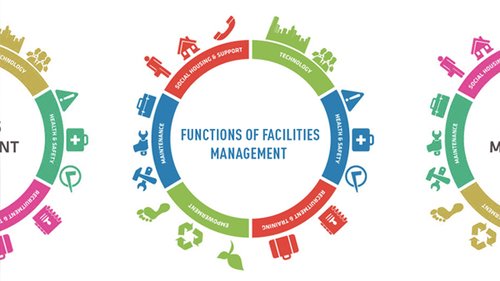
In order to better understand what a facility manager is doing, what they are responsible for, and what impact they have on a company, it is best to break down their job scope. That means analyzing the four key pillars of facility management more closely: staff, procedures, construction, and technology.
Supporting people
A facility manager's primary goal is to create an enjoyable work atmosphere for employees. It serves many wider goals, including recruiting and maintaining top talent, maximizing performance and profitability and building a positive atmosphere in the workplace. Facility managers serve as a bridge between the workplace and the workers who work in it. Whenever problems arise regarding accommodation, safety or comfort, it is up to the facility manager to resolve them. That, too, applies upwards. This is the duty of facility managers to provide the C-suite with critical planning data and to assess the long-term solution to workplace optimization. An everyday workplace engagement sheds light on real costs and employee-level competitive advantages.
Establishing processes Which are the roles of running facilities without a mechanism to control them? Establishment of processes brings order to the place of work. Balance provides a framework of priorities that brings in consistency and has a positive effect on how people use the workplace. Facility managers serve the dual role of identifying areas of governance and tailoring processes to cover. Whenever a new situation arises, it is up to the facility manager to create order from chaos and to build a repeatable framework for future handling of that scenario again. It's also where the concept of facility management extends its reach to establish processes. New processes can include different departments, staff , equipment, fixtures, and spaces all connecting the many aspects of the company.
Facilities upkeep and improvement
As the name suggests, facility administration is primarily rooted in physical building repair and upgrade services. But this is also the most robust scope for facilities managers to expect. It includes not only tending the house, but also fostering relationships, preparing for the future and managing properties. It falls under the domain of facilities manager because it has to do with the physical building. Facilities are the second largest employee expense it's a facilities manager's role to turn the workplace into a competitive advantage, rather than a cost centre. It's about ensuring services serve the needs of the people who use them.
Technology integration
The need for facilities managers to understand and use the technology is more important than ever. Workplace management systems aggregate data which drives critical business management decisions and shapes the workplace. It is the chief responsibility of facility managers to identify and implement the right technology. Physical technology integration is usually a matter for the IT department. Facilities managers are, however, the first and last word on how they are picked, used, and leveraged. Facility managers can capture and analyze data from networked systems using an Integrated Workforce Management Framework to gain insights into the workforce. This fuel better decision-making on how the work environment can be optimized for the people using it. It is important to note that not all of the office tech relies on collecting data. Access control systems promote safety while processes are streamlined by automation tech. And while every networked computer or software has a data portion, most tech's true benefit lies in its operation. To understand and leverage this function for optimal ROI, it is up to the facility managers.
Bring it together for facility management
Facility managers provide direct and indirect support to the workers. They set out order and organization processes. They themselves are entrusted with the care and enhancement of the services. To optimize the data for performance, they build complex integrations. When you put together these four functions, they paint a picture of what the facility managers are actually doing. Broadly speaking, they focus on optimizing the workplace in order to support every aspect of the business that it affects. Yet on a deeper level, it's about giving the solid a firm basis for success.
Facilities management role in enterprise growth
Facility management is an act of controlling and sustaining an organization's structures, which include orchestrating the office structure, organizational or site physical infrastructure, and other facilities for building management. Such facilities may include mechanical and electrical equipment which can put workers at risk for health and safety. Management of facilities has gained so much importance over the past few years as corporate and business owners have found that building management services help businesses to function effectively and thus more efficiently.
It is important to note that the Facilities Management Universe consists of practitioners engaged in the day-to-day study and maintenance and repair of organizational facilities behind such a realization of reality. Management of facilities is also actively involved in logistics planning activities that help to cut expenses while at the same time increasing productivity of employees. The program also ensures all facilities within an organization; complies with sector health and safety requirements i.e. the facility has accessibility access, fire protection measures and emergency escape plan in place with an appropriate waste management strategy, and monitoring of hazardous material and maintenance of company parking spaces.
Logistics Planning and Daily Operations: Facilities Management aims to be interested in both planning and day-to-day activities, and to think about ways to cut costs while increasing efficiency. Spend on a strategic plan to develop facility management services; companies and organizations need a good facility management program that will free up their time spent on day-to-day operations. A useful facility management system allows professionals to track and manage the building management system and integrated facilities services through assessments. This saves time for the facility management system and allows them to participate appropriately in business continuity decision making.
Health Safety and Security : Facility management services are vitally important to a growing business / or business as it ensures that all employees, visitors / guests and members of the public are kept as safe as possible. Management of the facility must ensure that all facilities managers of an agency or corporation comply with industry health and safety requirements and have control over all hazardous substances.
Maintenance : Maintenance of properties is also part of the management system of facilities. To help companies and companies gain the competitive edge and improve the overall efficiency of the worker; businesses must include the facility manager in strategic decision making. Depending on how the building management system works, a different area may be delegated to take care of, or be responsible for, the facility management system. Facilities Management system may need to conduct repair and maintenance activities on their own or call the appropriate departments to get the job done quickly and efficiently; all while not upsetting the employers.
Other services like cleaning catering, cleaning and other essential building management systems are also covered by the facility management. Those individuals responsible for the corporate activity must ensure that the correct food is purchased from the right suppliers and ensure that food is lawfully and hygienically cooked at the premises to meet the employees' health standards.
When to start a Facility Management Outsourcing
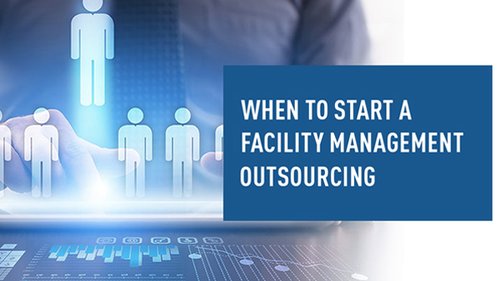
If you have never previously used professional facility management services, you may wonder if it should become the next step for your business, or when. Here are the signs that it is time for a company to start talking about taking care of the facility.
Your maintenance costs are going up
It's an accepted fact that maintenance costs money, but your business shouldn't run down on those costs. If you find inexplicably increasing maintenance and service costs each year, some common money-wasters to investigate include misuse or under-use of existing equipment, unnecessary storage of inventory and spare parts, and unused office rooms. Around 2 billion square feet of office space to its current stock, which is not a highly mobile workforce demand today. Getting more space to clean inevitably increases the cost of the maintenance.
Another factor that adds quickly to your bottom line is poorly managed maintenance staff and other staffing costs. Although a building's operation and repair costs account for 6 percent of overall costs over a 30-year period, personnel costs alone account for a whopping 92 per cent. If you run a program that often calls on independent plumbers , electricians, heating engineers, and other technicians, the costs will add up quickly. Not to mention the fact that the presence of these contractors often raises the possibility of quality assurance concerns.
You 're having trouble managing and tracking the assets
Knowing that over 40 per cent of small businesses are manually tracking their assets or not tracking them at all is a concern. While this technique causes limited problems early on, real problems will start to arise as soon as you begin to scale up. Facility management can help you better manage and track assets and inventories if you have any of the following experiences:
- The register of assets is incomplete, or does not exist.
- Monitoring of the company's owned properties is becoming increasingly difficult.
- The company can not state its asset status with confidence.
- The actual status of any asset is uncertain and its location.
- Nobody would know if any machinery, computer or tool were to go missing.
- You keep buying equipment replacements just to later find out you already had them.
You see a growing backlog of unfinished maintenance tasks. Different lines of research, show how employee engagement positively correlates with work satisfaction. To put it another way, satisfied employees are successful workers. To put it another way, satisfied employees are successful workers. However, without a designated facility management service, it's only a matter of time before they get frustrated and distracted due to leakage of taps, broken light bulbs or an air conditioning unit in the staff canteen that doesn't work well. These tasks are often postponed until later even if these tasks are instructed to call appropriate services so they start piling up. Soon, the company faces a substantial overdue maintenance list and very little hope of fixing it all. Soon, the company faces a substantial overdue maintenance list and very little hope of fixing it all.
Recurring Safety Issues Recurring safety issues are an indication that in a potentially dangerous environment you are operating. The simple truth is that it is not a matter of preference to improve the safety at your facility, it is mandated by law. Facility management takes these factors into account and can help you achieve and maintain the highest levels of operational safety using a combination of technology and human expertise and following these extensive guidelines for the environment , health and safety.
If any of the above describes the current situation in your business, it is clear that you are wasting time and valuable resources. If you should form an in-house facilities management team or outsource it to an independent contractor doesn't matter. The idea is that you understand how management of the facility will lead to substantial cost savings, improved safety performance and better overall service quality for your company.
Let's start with the simple way to create a website

Interested in Domitos? Get the Features Guide Today!
Domitos, is world's most sought after facility Management System and we look forward to work with. Digitize your facilities today!